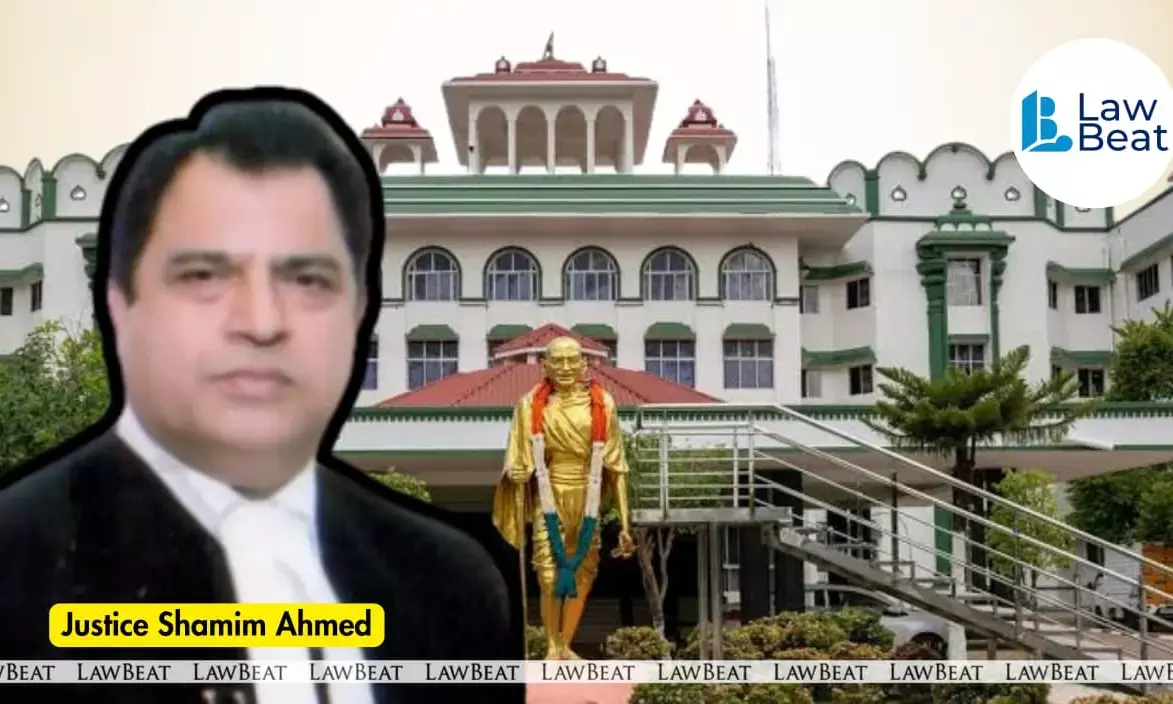Section 125 CrPC: Madras HC Says Maintaining Wife, Mother Legal and Moral Duty

The Madras High Court upholds a Family Court's decision, directing a man and his sons to provide maintenance to his estranged wife
The Madras High Court at Madurai Bench recently refused to interfere with a Family Court order directing a man and his two sons to pay a monthly maintenance of rs. 21,000 to his estranged wife, holding that the responsibility to maintain a wife and mother is both a legal obligation and a moral duty.
"It is the social responsibility of the husband and sons to maintain their wife and mother, as the invaluable role and care of a mother cannot be compensated, no matter how much her children pay her back in a lifetime. Moreover, no amount of payment can ever bear the pain and sacrifices that a mother endured at the time of their birth," court said.
The bench of Justice Shamim Ahmed dismissed a criminal revision petition filed by R. Ananda Prakash, his son A. Ashwin, and another son, A. Gururaj, challenging the order of the Family Court, Madurai, dated March 18, 2025. The court had awarded maintenance to Ananda Prakash’s wife, A. Malarvizhi, in a case filed under Section 125 of the Criminal Procedure Code.
The couple had married on January 7, 1986, and lived together until 2015, when, according to the petitioners, Malarvizhi voluntarily left the matrimonial home. In 2019, four years after the separation, she approached the Family Court claiming a monthly allowance of Rs. 40,000, return of 290 sovereigns of gold ornaments given during the marriage, and recovery of Rs. 5 lakh allegedly due to her.
The Family Court, however, restricted the relief to maintenance, directing payment of Rs. 21,000 every month to her. Against this decision, the husband and sons filed a revision petition before the High Court, contending that the order was unjust.
Counsel for the petitioners argued that Ananda Prakash, now over 60 years old, was suffering from health complications and had no independent income. His elder son Ashwin, was barely able to manage his household expenses, including the cost of medicines for his father, while Gururaj, who worked in Bengaluru, often needed financial assistance himself. They also claimed that Malarvizhi was not destitute but enjoyed sufficient means to support herself, pointing to her ownership of a car and employment of a driver. Further, they alleged that she had chosen to live separately without any justifiable cause and was therefore not entitled to claim maintenance.
The petitioners insisted that they were willing to provide for her needs at home, but the Family Court had failed to appreciate their situation properly.
Rejecting these submissions, the High Court observed that maintaining a wife and mother is not only a statutory responsibility but also a moral and social duty that cannot be evaded.
"It is a well-established principle that it is a man’s legal and moral duty to maintain his mother/wife during her lifetime. This responsibility stems from the inherent obligation of children to care for their parents. Similarly, it is the duty of the husband and children to provide for the wife and mother during her old age, ensuring she is supported and cared for," the judge remarked.
Court added that showing favour to one's mother and prioritizing her well-being in old age is a fundamental aspect of familial responsibility and societal values. By fulfilling this duty, individuals can ensure their mothers live their later years with dignity and care.
Court emphasised that Section 125 of the CrPC is a beneficial provision enacted to protect women from destitution and vagrancy. It noted that in an age of rising costs and inflation, the award of Rs. 21,000 per month could not be considered excessive or disproportionate.
Finding no illegality, impropriety, or incorrectness in the Family Court’s order, the bench upheld it in full.
Consequently, the High Court dismissed the revision petition and directed the Family Court, Madurai, to proceed in accordance with law.
Case Title: R.Ananda Prakash and Ors vs A.Malarvizhi
Order Date: September 23, 2025
Bench: Justice Shamim Ahmed
